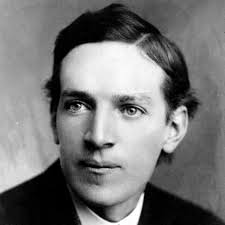The Jungle Page #4
The Jungle is a 1906 novel by the American journalist and novelist Upton Sinclair. Sinclair wrote the novel to portray the harsh conditions and exploited lives of immigrants in the United States in Chicago and similar industrialized cities.
When Tamoszius and his companions stop for a rest, as perforce they must, now and then, the dancers halt where they are and wait patiently. They never seem to tire; and there is no place for them to sit down if they did. It is only for a minute, anyway, for the leader starts up again, in spite of all the protests of the other two. This time it is another sort of a dance, a Lithuanian dance. Those who prefer to, go on with the two-step, but the majority go through an intricate series of motions, resembling more fancy skating than a dance. The climax of it is a furious prestissimo, at which the couples seize hands and begin a mad whirling. This is quite irresistible, and every one in the room joins in, until the place becomes a maze of flying skirts and bodies quite dazzling to look upon. But the sight of sights at this moment is Tamoszius Kuszleika. The old fiddle squeaks and shrieks in protest, but Tamoszius has no mercy. The sweat starts out on his forehead, and he bends over like a cyclist on the last lap of a race. His body shakes and throbs like a runaway steam engine, and the ear cannot follow the flying showers of notes--there is a pale blue mist where you look to see his bowing arm. With a most wonderful rush he comes to the end of the tune, and flings up his hands and staggers back exhausted; and with a final shout of delight the dancers fly apart, reeling here and there, bringing up against the walls of the room. After this there is beer for every one, the musicians included, and the revelers take a long breath and prepare for the great event of the evening, which is the acziavimas. The acziavimas is a ceremony which, once begun, will continue for three or four hours, and it involves one uninterrupted dance. The guests form a great ring, locking hands, and, when the music starts up, begin to move around in a circle. In the center stands the bride, and, one by one, the men step into the enclosure and dance with her. Each dances for several minutes--as long as he pleases; it is a very merry proceeding, with laughter and singing, and when the guest has finished, he finds himself face to face with Teta Elzbieta, who holds the hat. Into it he drops a sum of money--a dollar, or perhaps five dollars, according to his power, and his estimate of the value of the privilege. The guests are expected to pay for this entertainment; if they be proper guests, they will see that there is a neat sum left over for the bride and bridegroom to start life upon. Most fearful they are to contemplate, the expenses of this entertainment. They will certainly be over two hundred dollars and maybe three hundred; and three hundred dollars is more than the year's income of many a person in this room. There are able-bodied men here who work from early morning until late at night, in ice-cold cellars with a quarter of an inch of water on the floor--men who for six or seven months in the year never see the sunlight from Sunday afternoon till the next Sunday morning--and who cannot earn three hundred dollars in a year. There are little children here, scarce in their teens, who can hardly see the top of the work benches--whose parents have lied to get them their places--and who do not make the half of three hundred dollars a year, and perhaps not even the third of it. And then to spend such a sum, all in a single day of your life, at a wedding feast! (For obviously it is the same thing, whether you spend it at once for your own wedding, or in a long time, at the weddings of all your friends.)
Translation
Translate and read this book in other languages:
Select another language:
- - Select -
- 简体中文 (Chinese - Simplified)
- 繁體中文 (Chinese - Traditional)
- Español (Spanish)
- Esperanto (Esperanto)
- 日本語 (Japanese)
- Português (Portuguese)
- Deutsch (German)
- العربية (Arabic)
- Français (French)
- Русский (Russian)
- ಕನ್ನಡ (Kannada)
- 한국어 (Korean)
- עברית (Hebrew)
- Gaeilge (Irish)
- Українська (Ukrainian)
- اردو (Urdu)
- Magyar (Hungarian)
- मानक हिन्दी (Hindi)
- Indonesia (Indonesian)
- Italiano (Italian)
- தமிழ் (Tamil)
- Türkçe (Turkish)
- తెలుగు (Telugu)
- ภาษาไทย (Thai)
- Tiếng Việt (Vietnamese)
- Čeština (Czech)
- Polski (Polish)
- Bahasa Indonesia (Indonesian)
- Românește (Romanian)
- Nederlands (Dutch)
- Ελληνικά (Greek)
- Latinum (Latin)
- Svenska (Swedish)
- Dansk (Danish)
- Suomi (Finnish)
- فارسی (Persian)
- ייִדיש (Yiddish)
- հայերեն (Armenian)
- Norsk (Norwegian)
- English (English)
Citation
Use the citation below to add this book to your bibliography:
Style:MLAChicagoAPA
"The Jungle Books." Literature.com. STANDS4 LLC, 2025. Web. 9 Mar. 2025. <https://www.literature.com/book/the_jungle_272>.








Discuss this The Jungle book with the community:
Report Comment
We're doing our best to make sure our content is useful, accurate and safe.
If by any chance you spot an inappropriate comment while navigating through our website please use this form to let us know, and we'll take care of it shortly.
Attachment
You need to be logged in to favorite.
Log In